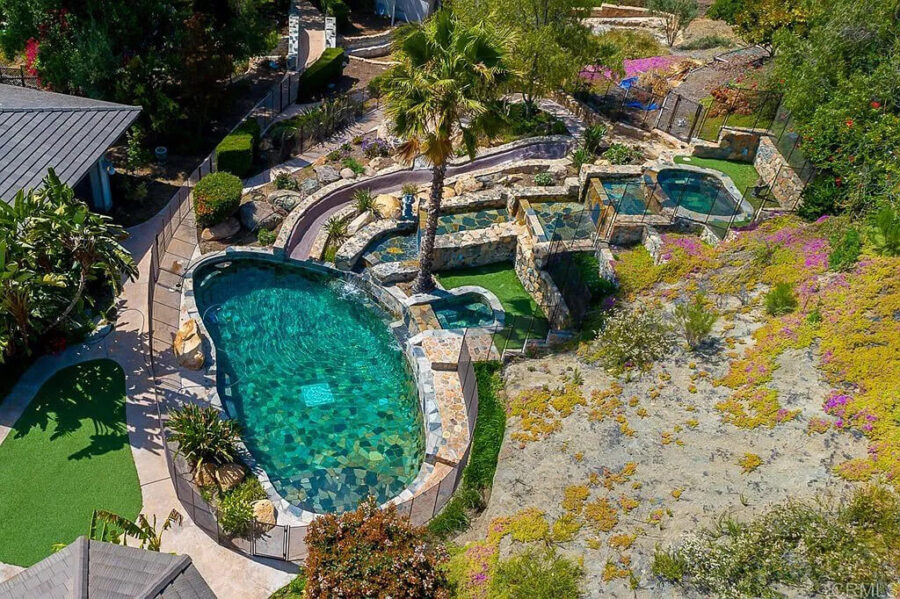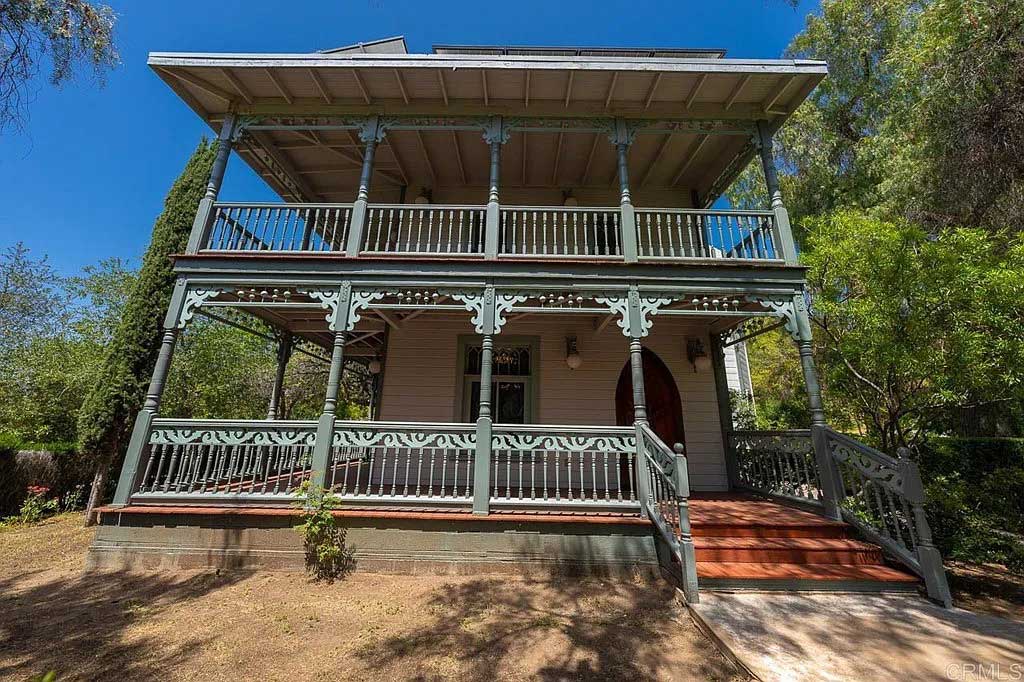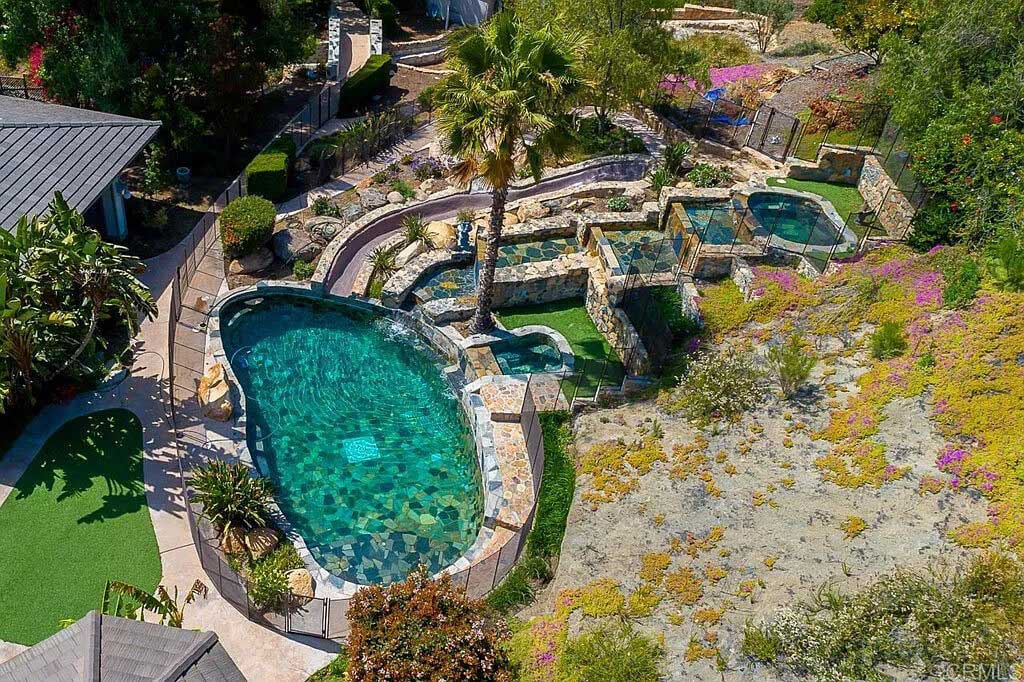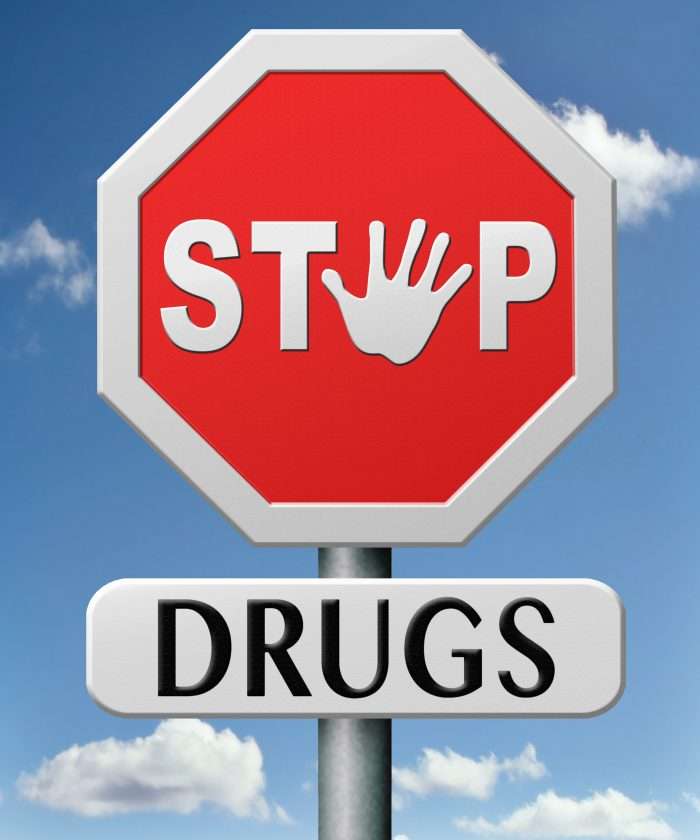
Private Drug & Alcohol Detox near Carlsbad
At Pacific Bay Recovery, we provide top-tier drug and alcohol rehab services tailored to meet the unique needs of individuals near Carlsbad. Our evidence-based programs combine advanced medical care, personalized therapies, and compassionate support to guide individuals on their journey to lasting recovery. With a serene location and highly skilled team, we create an ideal environment for healing, empowering clients to regain control of their lives and build a future free from addiction.
We have been providing treatment for individuals struggling with substance use disorder for over a decade. Substance abuse is a disease that requires the expertise and dedication of addiction treatment specialists. At Pacific Bay Recovery, our drug and alcohol rehab Carlsbad team not only understands its complexities, but has achieved exceptional success rates.
If you or someone you know is struggling with alcohol addiction, call Pacific Bay Recovery at 619-350-8220
Luxury Drug and Alcohol Rehab near Carlsbad
For those seeking a high-end rehab experience, Pacific Bay Recovery offers luxury rehab facilities near Carlsbad. These programs combine comfort, privacy, and world-class care to provide a transformative recovery experience.
Luxury Rehab Features:
- Private, upscale accommodations designed for relaxation.
- Chef-prepared, nutritious meals tailored to your health needs.
- Access to holistic therapies such as yoga, meditation, and massage therapy.
- Beautiful outdoor spaces for reflection and physical activity.
- Personalized, one-on-one therapy sessions for targeted support.
Luxury rehab offers a serene, distraction-free setting for individuals to focus on their recovery journey
Call Pacific Bay Recovery now at 619-350-8220 to learn more about our alcohol detox and residential at our private location.
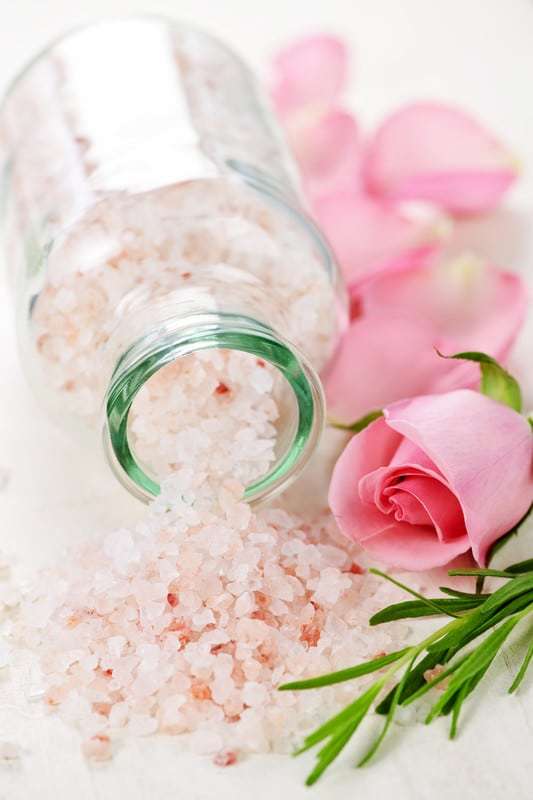
About Substance Use Disorder
Addiction to drugs and alcohol are complex substance use disorders that has no single causal factor, but rather an array of possible causes. While science has identified certain potential risk factors, such as genetics, family history, environmental, and personality traits, much remains unknown.
Addiction such as alcoholism is considered a relapsing disease of the brain. Chronic drinking causes the interplay in the brain’s reward network and neural pathways that results in addiction. The addiction cycle is fueled by alcohol seeking behaviors, alcohol consumption, and withdrawal symptoms. The withdrawal symptoms then prompt repeated alcohol seeking behaviors, and the cycle repeats.
The only known cure for alcoholism is sustained long-term sobriety. Getting and remaining sober is difficult but possible with the support of the treatment team at Pacific Bay Recovery.
Recognizing an Substance Use Disorder
Pacific Bay Recovery is a leading drug and alcohol rehab facility serving Carlsbad that can help individuals assess whether they have a drug or alcohol use disorder, and its severity. Our clinical team will sit down with you to conduct a thorough evaluation of your drinking habits.
Alcohol use disorder is the term used in the DSM-5 to diagnose and stage the disease. A stage of mild, moderate, or severe refers to the duration of the chronic disordered drinking, and various criteria. Symptoms of alcohol use disorder may include:
- An inability to limit or quit drinking alcohol
- Increased tolerance that results in higher consumption over time
- Compulsive need to have alcohol supply available and opportunities to drink
- Alcohol cravings
- Secretive behaviors, such as hiding alcohol and lying about consumption
- Continued drinking despite the negative effects on health, work, and relationships
- Withdraw socially
- Neglects responsibilities at home and work
- Uses alcohol in risky situations
- Has alcohol withdrawal symptoms in the absence of alcohol availability
What to Expect in Detox and Withdrawal
For most individuals entering treatment, a medically monitored detox will be the first step in the recovery timeline. Alcohol detox is sometimes unpredictable, which is why it should never be attempted without medical supervision. Our expert drug and alcohol detox team in Carlsbad monitors the client’s progress and administers medications as needed to help reduce withdrawal discomfort.
Symptoms may range from mild to severe, and even life threatening. During the initial intake interview and assessment, our team is able to gauge the severity level to some extent based on these factors:
- Duration of substance use disorder
- Daily consumption level
- Prior detox attempts
- General health status and age
- Co-occurring mental health disorders
- Poly-substance abuse
You can overcome alcohol dependence with the right support. Call Pacific Bay Recovery at 619-350-8220
Substance Use Disorders Treated at our Center
We offer treatment for multiple substance use disorders, including:
- Alcohol Addiction: Physical dependency and emotional trigger evidence-based interventions.
- Marijuana Addiction: Breaking psychological dependence and developing healthy routines.
- Opioid Addiction: Holistic treatment of addiction strengthened by prescription painkiller, heroin, and synthetic opioids such as fentanyl.
- Cocaine Addiction: Methods for managing physical and psychological effect of stimulant abuse.
- Methamphetamine Addiction: Therapies to reverse the ruinous impact of methamphetamine addiction.
- Fentanyl and Heroin Addiction: Cutting-edge interventions to reverse these extremely addictive drugs.
Each therapy is crafted to meet the individual needs and complexities of each addiction.
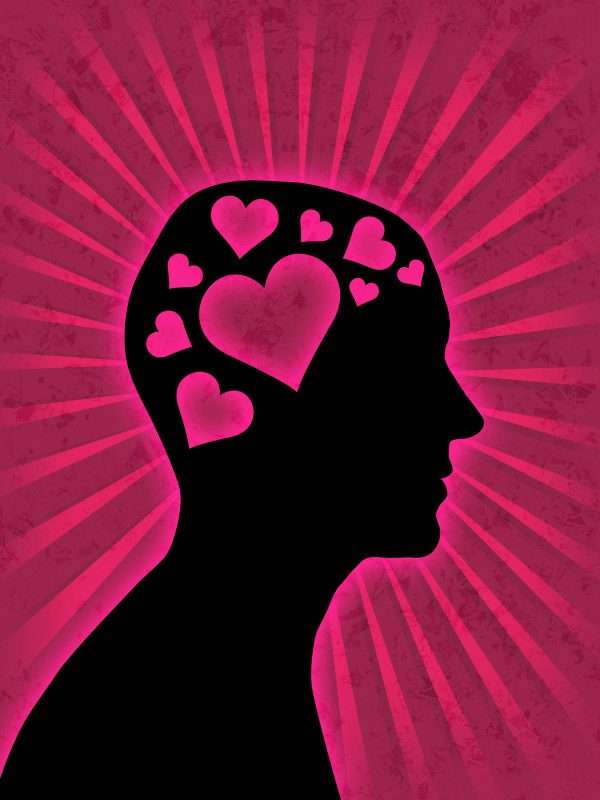
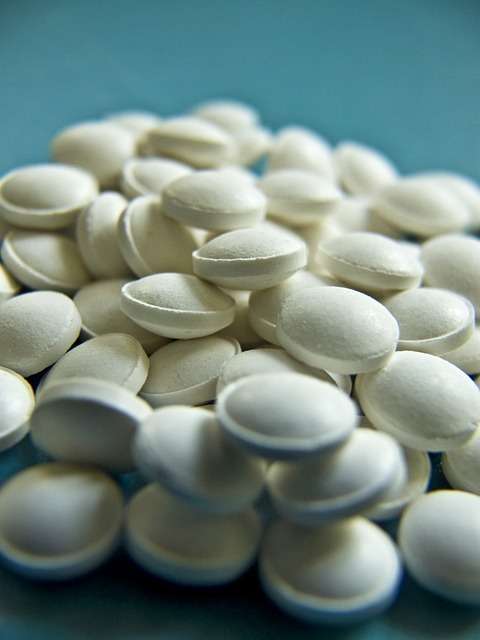
Drug & Alcohol Rehab Carlsbad Addiction Treatment
Pacific Bay Recovery rehabilitation program is second to none, and is the next stage of alcohol use disorder recovery. The purpose of alcohol rehab is to guide individuals toward making changes in behaviors that kept them trapped in the addiction cycle. Residential rehab provides a safe, structured treatment environment and a daily schedule of therapy sessions and recovery activities.
Here are the treatment activities you will be engaging in during rehab:
- Psychotherapy. You will participate in CBT and/or DBT to learn better ways of responding to triggers, emotions, and stress. These therapies help you to change the disordered thought patterns that kept you trapped in the addiction cycle.
- Groups. In group therapy sessions you will join peers to discuss topics that revolve around recovery, and share your personal experiences.
- Family therapy. Family therapy during the treatment program is helpful for both the individual in rehab and the family members.
- Classes. You will learn about how alcohol impacts the brain, and learn new coping skills to help reinforce sobriety.
- Relapse prevention. Each individual in treatment will create his or her own unique relapse prevention plan.
- Holistic methods. Relaxation techniques, such as yoga classes, meditation, art therapy, and deep breathing, help to restore mental wellness.
Don’t put your life or your long-term health at risk. Call us today at 619-350-8220
Drug & Alcohol Detox Timeline
The drug and alcohol detox timeline will vary from one individual to the next depending on the above factors. However, it does follow a fairly predictable 3-stage pattern. Withdrawal symptoms usually occur within 6-24 hours.
Phase 1: The first phase of detox features emerging symptoms and lasts one to two days. Symptoms might include hand tremors, interrupted sleep, foggy thinking, heart palpitations, mood swings, headaches, sweating, nausea and vomiting.
Phase 2: The second phase of detox features peak severity of symptoms and lasts about two days. These might include mental confusion, increase in blood pressure, irritability, hallucinations, and seizures. It is during this phase that the severe withdrawal symptoms called delirium tremens might emerge, but just 5% are affected.
Phase 3: During the final phase of detox, symptoms will start to slowly subside. However, post-acute withdrawal syndrome is not uncommon, with some symptoms that may persist for weeks.
Drug & Alcohol Recovery Care Planning After Treatment
After completing residential treatment, there are many actions to take to help reinforce sobriety. Getting well is a process that unfolds over time, involving continuing care as well as establishing a healthy lifestyle.
Recovery support includes such things as outpatient therapy, sober living if needed, and joining a local A.A. community. These actions will be further strengthened by self-care activities, such as:
- Get in shape. Create a weekly fitness routine that promotes an active lifestyle. Consider gym workouts, hiking, cycling, rowing, running, or daily walks.
- Improve sleep quality. Stick to a regular sleep schedule, limit caffeine, and unplug from your smartphone an hour prior to bedtime.
- Eat healthy foods. Avoid sugary and salty snacks, and eat lean proteins, veggies, fruits, low-fat dairy, whole grains, and lots of water.
- Learn to relax. Managing stress is essential in recovery. Try yoga, mindfulness, guided meditation, focused breathing techniques, or massage.
- Nurture a sober network. Having a sober support network is critical to avoiding relapse. Get a sponsor, create friendships with peers in recovery, and select a friend or family member as a trusted source of support.


Why Choose Our Drug & Alcohol Rehab Facility Near Carlsbad?
Choosing the right rehab facility is a life-altering choice on the path to recovery, and our drug & alcohol rehab facility near Carlsbad has all that you’ll require to prosper. Located in a secure and nurturing coastal environment, we offer seasoned clinicians, personalized treatment plans, and clinically proven treatments to help you or your loved one overcome addiction. Our center is focused on healing the mind, body, and spirit through a holistic methodology that encourages long-term recovery. Our reputation, which has been established over the years, guarantees we are committed to assisting you in creating a better, addiction-free life tomorrow. Here’s what sets our Carlsbad rehab apart and why so many turn to us to begin their journey to sobriety:
- Expert Team: Experienced addiction specialists, therapists, and medical professionals.
- Personalized Care: Tailored treatment plans for every client.
- Serene Location: A peaceful setting near Carlsbad, perfect for focused healing.
- Proven Success: Evidence-based therapies that deliver lasting results.
Start Your Recovery Journey Today
Pacific Bay Recovery is a premier drug and alcohol rehab center serving Carlsbad, CA. We provide the full spectrum of recovery services to help clients develop the life skills, behaviors and attitudes that lead to long-term success. Reach out to our admissions team today.
Call our alcohol detox in today at 619-350-8220 for more information.


















